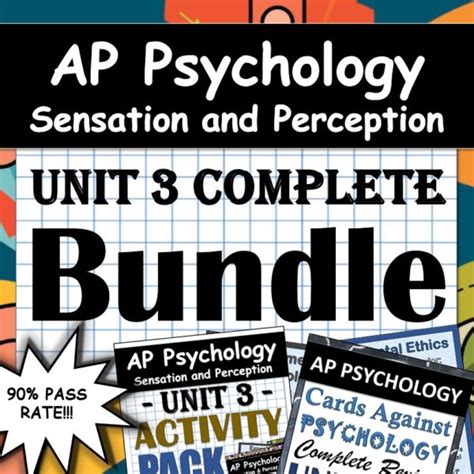In AP Psychology Unit 3, students explore the fascinating world of learning and memory, delving into the processes that shape our understanding of the world around us. This comprehensive unit encompasses a wide range of concepts, including classical conditioning, operant conditioning, and memory systems.

Classical Conditioning
Classical conditioning, a fundamental learning process, involves associating a neutral stimulus with a stimulus that naturally triggers a response. According to Ivan Pavlov’s famous experiment, dogs salivated at the sound of a bell after associating it with the presentation of food. This type of learning is essential for understanding reflexes and other involuntary behaviors.
Operant Conditioning
Operant conditioning, introduced by B.F. Skinner, emphasizes the role of consequences in shaping behavior. Individuals increase or decrease certain actions based on the rewards or punishments they receive. Positive reinforcement strengthens behaviors by providing a reward, while negative reinforcement increases behaviors by removing an unpleasant stimulus. Punishment, on the other hand, weakens behaviors by delivering an unpleasant stimulus or removing a pleasant one.
Memory Systems
Memory systems are complex mechanisms responsible for encoding, storing, and retrieving information. The three main types of memory systems are:
| Memory System | Duration | Capacity | Function |
|---|---|---|---|
| Sensory Memory | Less than a second | Limited | Holds raw sensory information |
| Short-Term Memory (STM) | 15-30 seconds | Limited (7±2 items) | Stores information for temporary use |
| Long-Term Memory (LTM) | Indefinite | Unlimited | Stores information for extended periods |
Sleep and Memory
Sleep plays a crucial role in memory consolidation, the process of transferring information from STM to LTM. During sleep, the brain replays memories and strengthens neural connections, enhancing retention. Studies have shown that people who get a good night’s sleep before a test perform better than those who do not.
Cognitive Enhancers
Cognitive enhancers, such as caffeine and nicotine, have been shown to improve attention and memory in some individuals. However, it is important to use these substances with caution, as they can have negative side effects and become addictive.
Applications of Learning and Memory
The principles of learning and memory have numerous applications in various fields:
| Field | Application | Example |
|---|---|---|
| Education | Optimizing teaching methods | Spaced repetition and active recall |
| Therapy | Modifying behaviors | Cognitive-behavioral therapy (CBT) |
| Marketing | Creating memorable campaigns | Using classical conditioning to trigger associations |
| Medicine | Understanding and treating memory disorders | Developing new therapies for Alzheimer’s disease |
Tips and Tricks
- Use active recall: Regularly test your memory to strengthen retention.
- Interleave your learning: Mix up different subjects or topics to enhance understanding.
- Get enough sleep: Aim for 7-9 hours of quality sleep per night.
- Avoid distractions: Minimize distractions during study or concentration tasks.
- Use mnemonics: Develop memory aids, such as acronyms or rhymes, to recall information.
Common Mistakes to Avoid
- Overestimating your memory: Trust your memory but do not rely on it entirely.
- Cramming: Avoid last-minute cramming and spread out your study sessions.
- Passively reading: Actively engage with the material by taking notes, summarizing, or teaching it to someone else.
- Neglecting sleep: Prioritize getting enough sleep for optimal memory function.
- Procrastinating: Break down large tasks into smaller, manageable chunks and start early.
By understanding and applying the principles of learning and memory, we can enhance our learning abilities, improve our memory, and make a positive impact on various aspects of our lives.
